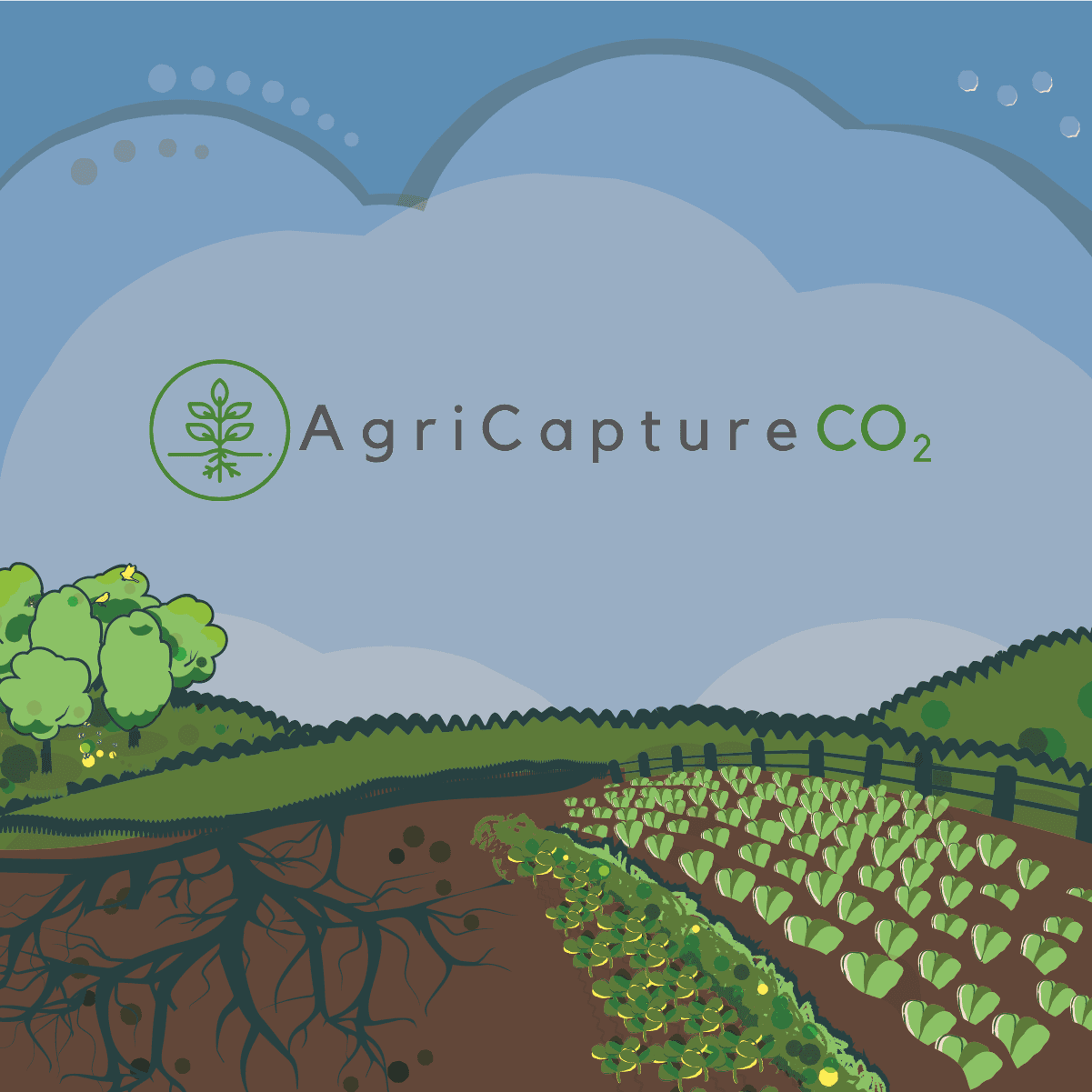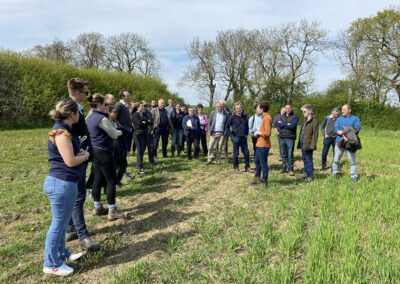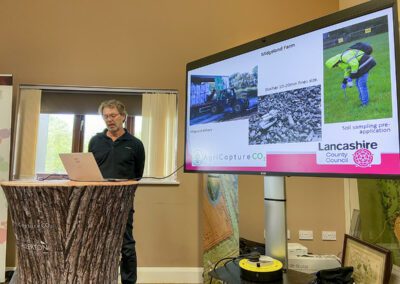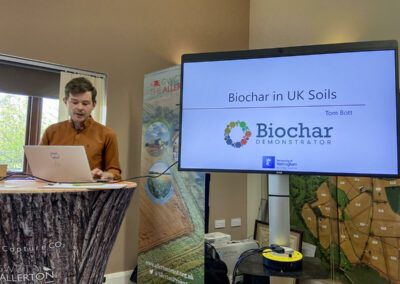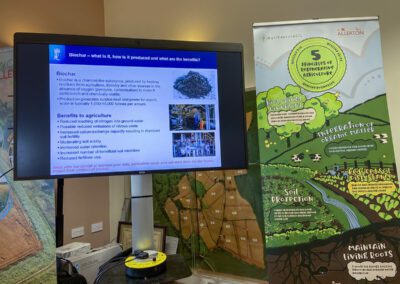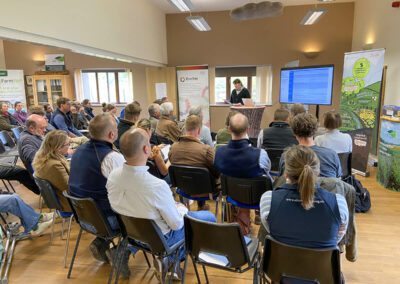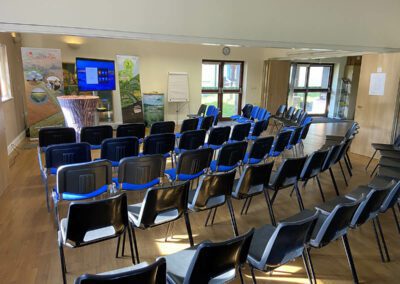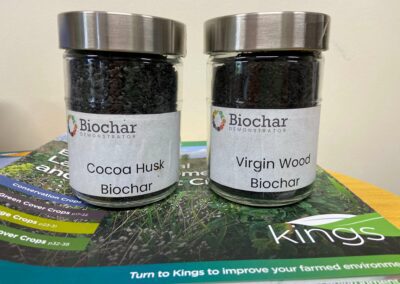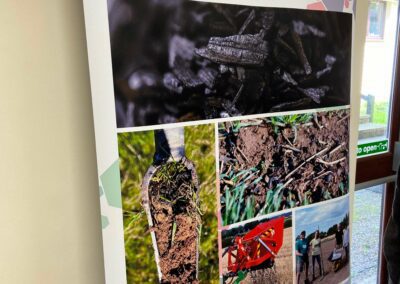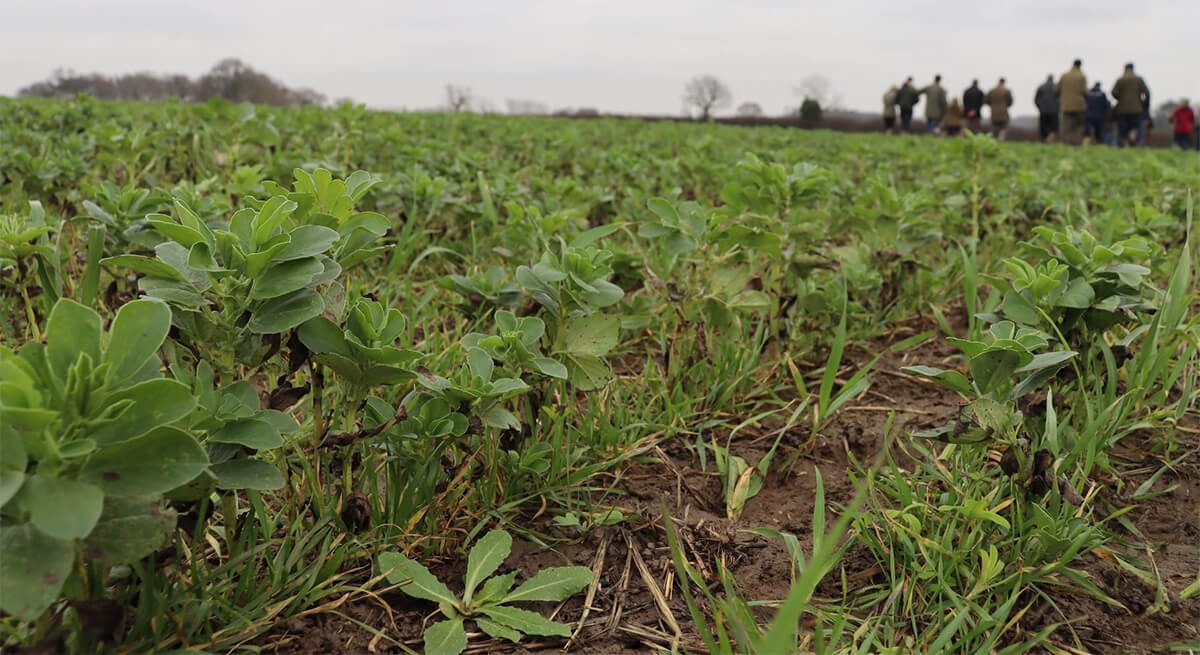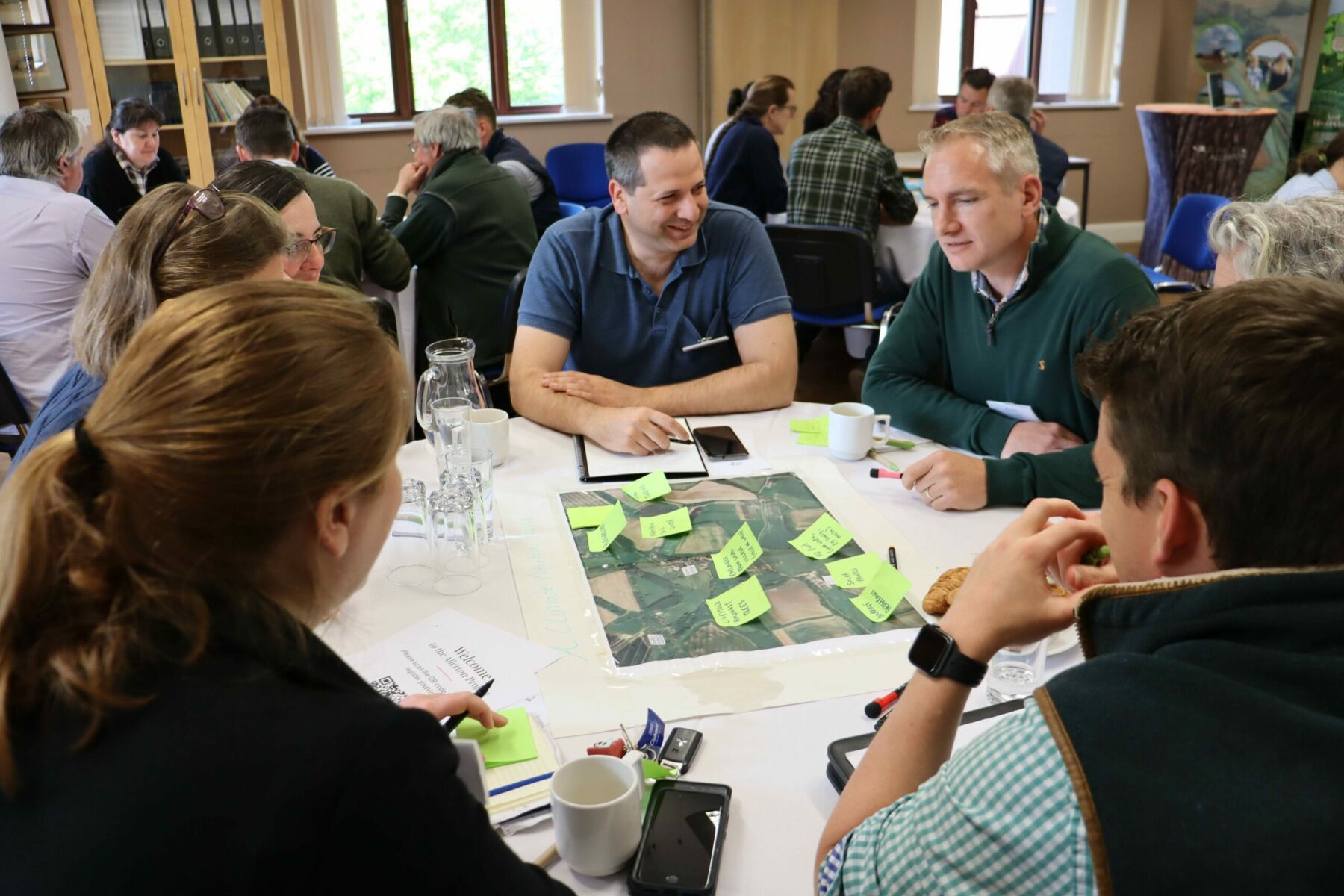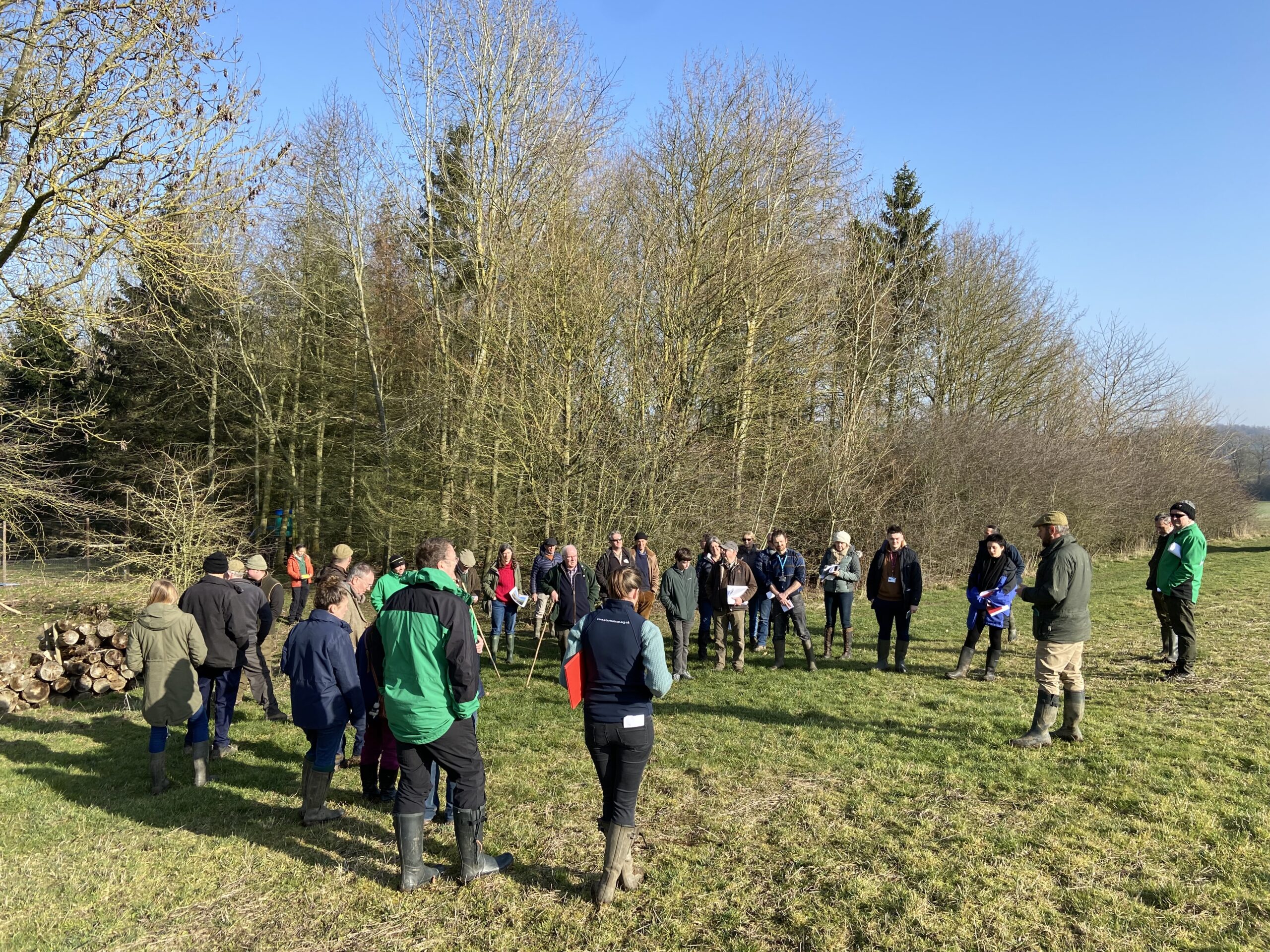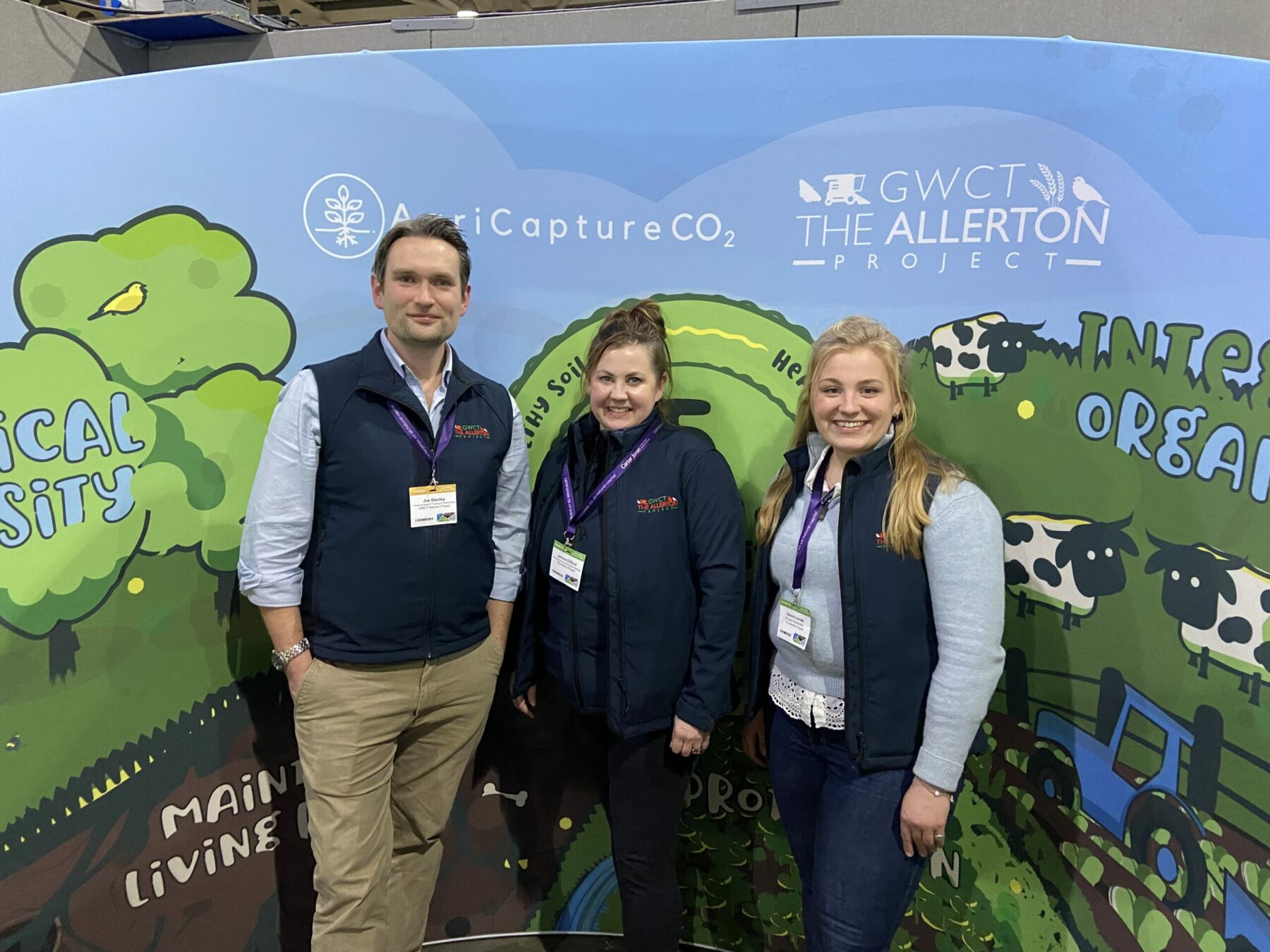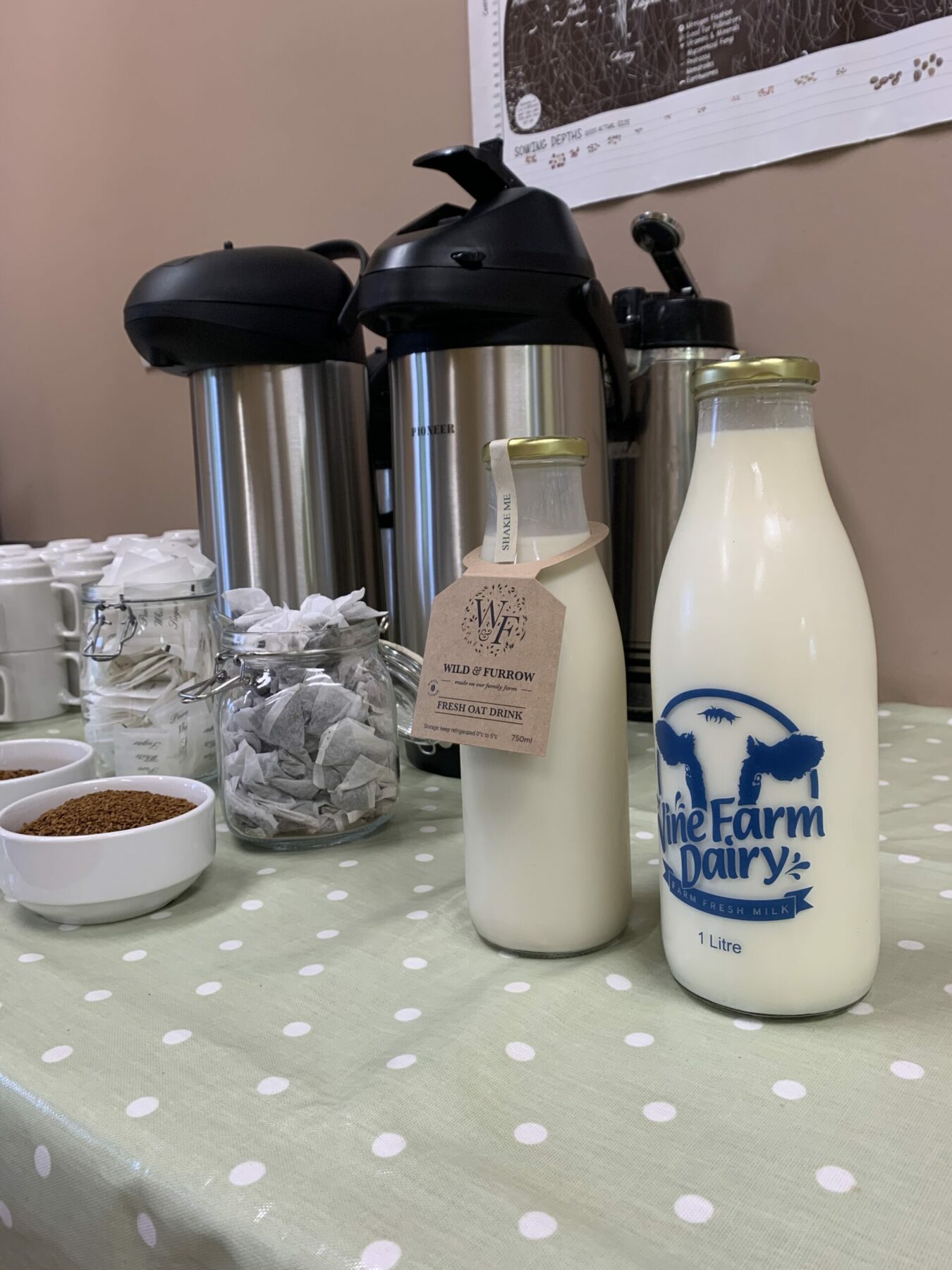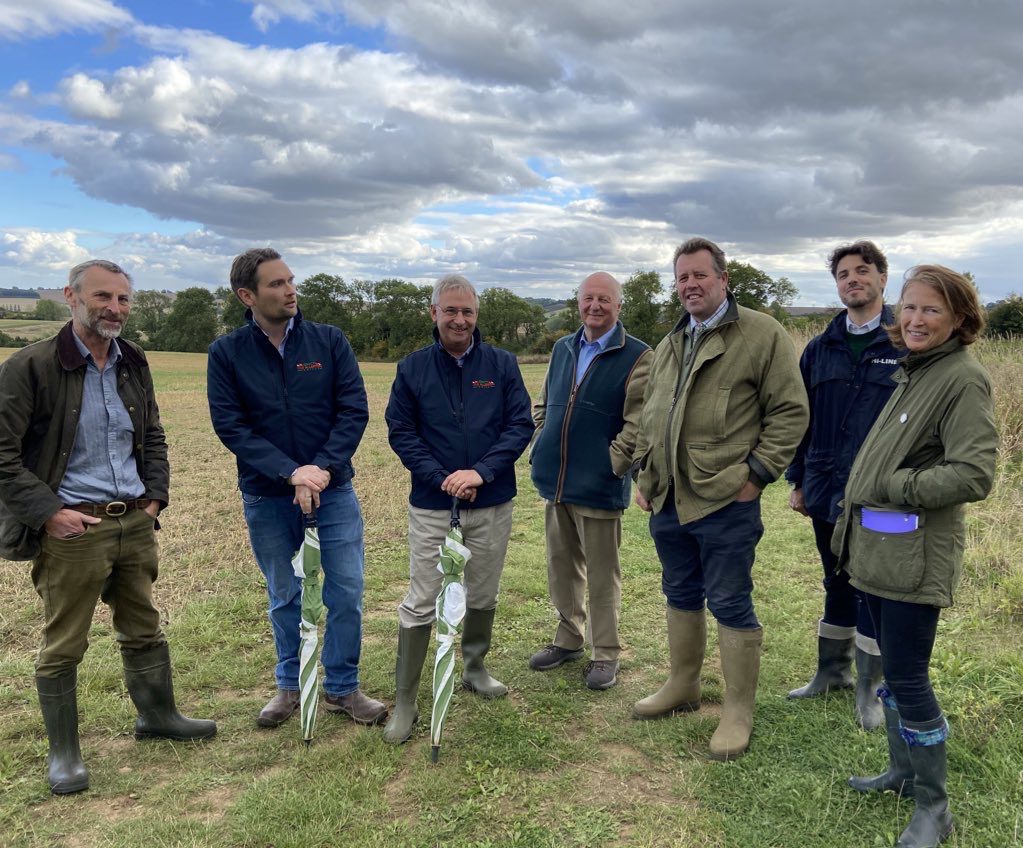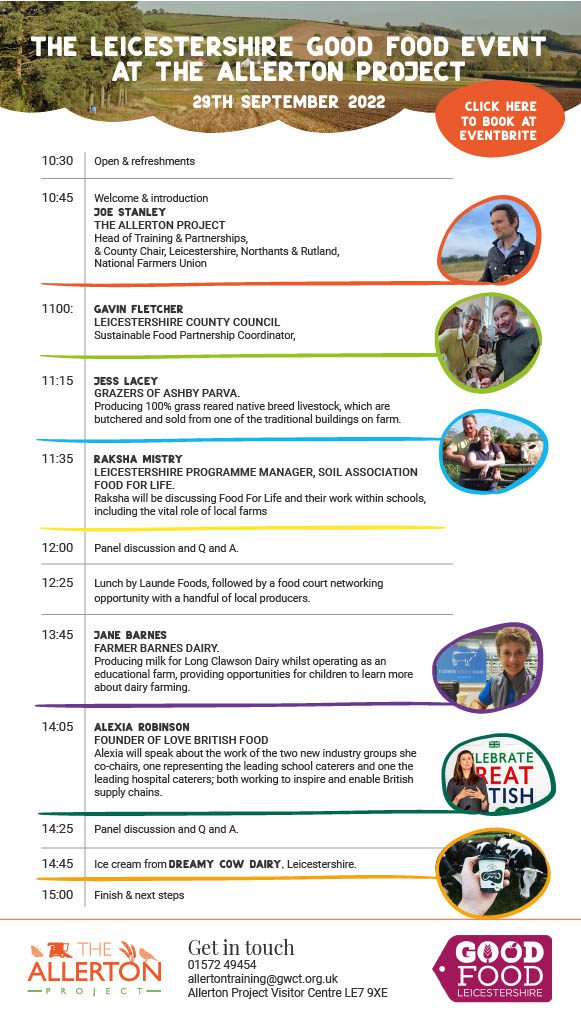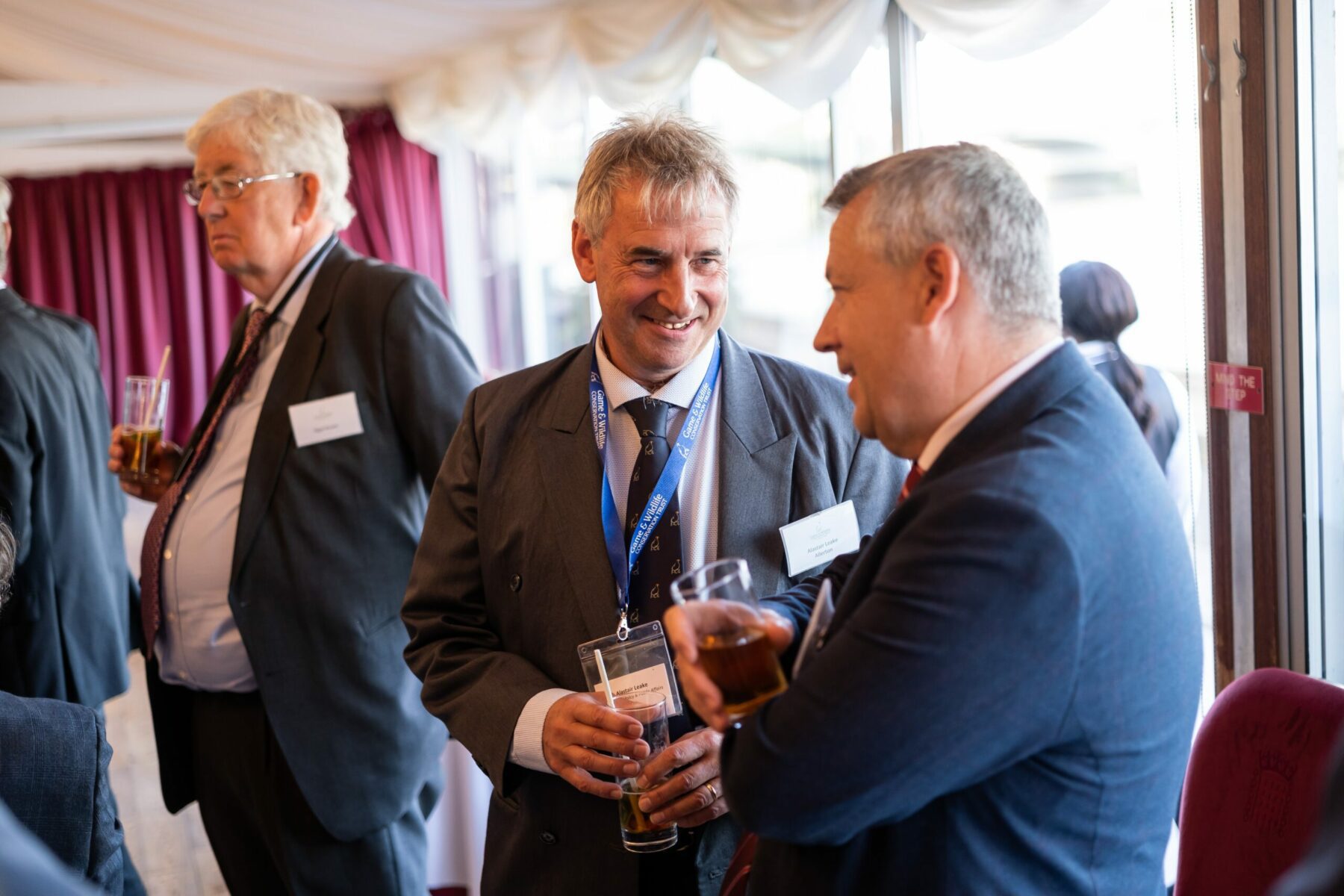On 4th May the Allerton Project hosted our inaugural Agricultural Biochar Knowledge Exchange event, bringing together stakeholders from across the industry with an interest in this exciting and rapidly evolving field.
The day was held in conjunction with the The Biochar Demonstrator, a UKRI funded programme led by the University of Nottingham to assess the potential for biochar to contribute toward national greenhouse gas reduction (GGR) objectives. For our part, the Allerton Project was representing our work with AgriCaptureCO2, an EU Horizon 2020 project based around the potential for regenerative agriculture to help contribute toward soil carbon sequestration and assist in meeting European climate change targets.
Biochar is formed from the burning of organic matter at high temperatures in the absence of oxygen (pyrolysis). This process essentially leaves only the carbon present in the original organic ‘feedstock’ as a relatively stable charcoal. Clearly, from a climate change perspective, the attraction of biochar is that the carbon which has been originally fixed from the atmosphere within the feedstock – wood pellets, for example – is now much less likely to revert back to its gaseous form. Therefore biochar on a large scale – especially of organic materials which would otherwise become waste – may have the potential to draw down significant volumes of planet-warming gasses. From an agricultural perspective, there are hoped to be multiple benefits from the application of biochar to land; in reducing bulk density and improving workability; in improving soil nutrient status; boosting the soil microbiome; improving water infiltration and holding; and in potentially rapidly
building soil organic carbon levels. As part of the Biochar Demonstrator, we are conducting research to ascertain whether these benefits are apparent in a direct-drilled arable situation, as well as monitoring soil emissions and whether there is any detectable ‘lock up’ of nutrients or residual herbicides. As part of the AgriCaptureCO2 project, we are seeking to pioneer whether variable rate biochar application is possible based on underlying soil properties.
The Knowledge Exchange event was a great success, seeing more than 50 delegates from across the industry including farmers, researchers, representatives from industry organisations and from the biochar production sector. We heard of the practical reality of biochar across the globe from the University of Nottingham team, as well the anticipated benefits and challenges as both a GGR mechanism and as a soil amendment. We also heard from a number of UK farmers currently utilising biochar in their systems, as well as a biochar producer and the Environment Agency, which currently regulates the use of biochar in England. Another AgriCaptureCO2 partner, Lancashire County Council, also spoke of their experience utilising biochar as a means to meet their own climate targets whilst improving the quality of council-held grazing land. It’s hoped that this will be merely the first biochar KE summit to be held at the Allerton Project, and certainly there was no shortage of interest in this fascinating day.
Full list of speakers:
- Assessment of biochar as a means of long-term carbon sequestration: Professor Colin Snape & Dr William Meredith, Faculty of Engineering, University of Nottingham
- Biochar in UK Soils: Dr Tom Bott, School of Biosciences, University of Nottingham
- The AgriCaptureCO2 project: Joe Stanley, Allerton Project
- Biochar: A Trial Farmer’s Experiences and Perspectives: Simon Watchorn
- Potential for Biochar production and use within Agroforestry systems: Oliver Kynaston
- Experiences from the AgricaptureCO2 Lancashire Biochar Pilot: Nik Bruce, Lancashire County Council
- The biochar producer’s perspective: Liz Casely, Dark Black Carbon
- The regulatory perspective: Ross Lowrie, Net Zero & Decarbonisation Senior Advisor, Environment Agency

